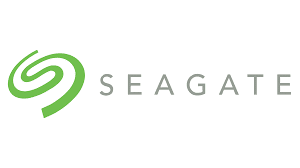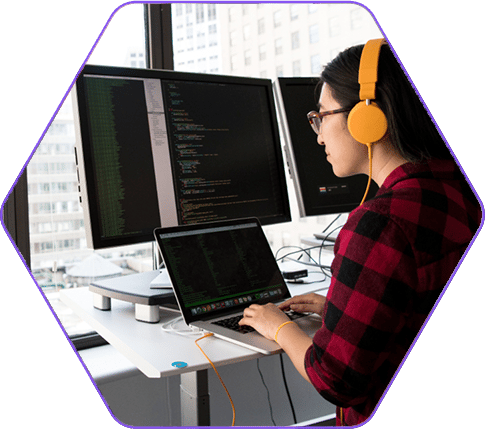
Seagate’s Lyve Cloud Engineers Experiment Debugging with Rookout’s Technology

Overview: The Seagate Debugging Challenge
Seagate Lyve Cloud relied on logs to debug issues, organizing them through Logstash and viewing them in Kibana. But the debug process took too long – including editing code for every debug – guaranteeing several days of updates and changes (including adding log lines).
To match their unprecedented demand and slash downtime from extended code edits, they started seeking out a better answer to their debugging challenge that would be faster and much more efficient. They needed to preserve the high level of customer experience they were providing and maintain on-demand access to their data storage. With their strict SLAs for uptime, only a strong tool would suffice.
Up until trying Rookout’s solution, Lyve Cloud engineers were dealing with tools that weren’t designed for today’s cloud-native infrastructure, and which weren’t operating at sufficient level that high scaling demanded. Developer velocity was limited since they had no way to do anything in real-time without entering the UI itself and making changes to their code. Seagate experienced monumental growth in its cloud storage business that forced them to rethink how they approached troubleshooting.
Seagate Lyve Cloud engineers needed to get around the need for adding log lines and editing code. If they could find a way to cut even more time off their debugging workflow, that would be a bonus.
“We were spending too many hours going through long workflows that simply weren’t productive or conducive to the level of service that we provide. That’s why we searched for a new tool that would help us do so easily, quickly, and efficiently”, said Avi Rosenberg, Lyve Cloud Tech Lead at Seagate.
Lyve Labs, Seagate’s innovation center, took on the challenge and scouted for the relevant advanced solution, ultimately approaching Rookout as the best option.
Solution: Adopting the Rookout Live Debugger
Seagate manages different workflows for security and compliance depending on where their customers are.
Seagate has 10 data centers around the world. Each one has its own physical layer to work with, as well as issues to troubleshoot related to APIs, networking, and memory. Throw on top of that that there are so many tools for observability, monitoring, and alerts, and it’s a complicated environment.
“There are a lot of different processes for us to manage manually, which become even more challenging when we’re dealing with clusters”, Oshrit Malach, Golang Software Engineer at Seagate, told Rookout.
Seagate added Rookout’s Live Debugger to its tech stack. The Live Debugger skips code edits, letting you set non-breaking breakpoints in your code without stopping your application in production or restarting it later. This approach avoids downtime and doesn’t disrupt the customer experience.
Additionally, the Live Debugger has universal applicability within Lyve Labs. It works for every data center without compromising the unique security and local compliance requirements, no matter where the center was located and what regions it serviced.
Rookout offered Seagate a lot more than just the basics. They needed to help their developers first and foremost, but Rookout also added more flexibility for them to debug freely in staging and production. With the scale of Seagate’s demand growing and tight SLA requirements to meet, Seagate was able to answer its own customers’ needs more decisively.
Results: Reduced debugging time from several days to a matter of hours
Right after deploying, Rookout helped Seagate’s developers trim 30% off the time needed to go through a full debug. That was just the start. With the use of Rookout’s Live Debugger, there was no need to rely on logs or extra code editing. This helped save significantly on overhead and let engineers shift their time to other tasks.
Previously, each deployment cycle would take a minimum of a full working week – five days – with all the new code pushed to deployment and for the entire SDLC to conclude. Rookout shortened that significantly, letting developers collect the data they needed in a matter of seconds.
- Upon deployment, Rookout enabled Seagate to reduce its MTTR by at least 30%.
- The Rookout Live Debugger cut overhead, freeing up developers for feature creation and building up their competitive edge.
- Debug workflows went from a matter of days to a matter of hours.
- The debugging process was able to work universally, for all of Seagate’s data centers, without compromising specific security or compliance requirements of customers in different regions.
Bottom Line
“Rookout can be a game-changer for us. What manually takes us days to do – and an endless amount of log lines – will now be done in a matter of hours. We will be able to get to the deepest levels of our code and quickly fix any issues. This not only allows us developers to spend more time on other tasks but allows us to level up the experience we provide our customers”, said Oshrit Malach, Golang Software Engineer at Seagate
Rookout gave Seagate’s developer teams the power to debug without impacting issues such as stopping, re-editing, and relaunching code for every debug process. Debugging became a simpler process with the Rookout Live Debugger in play, reducing the number of people needed to work on a debugging workflow and letting teams focus on scaling Seagate’s service to customers. Seagate and Lyve Labs were able to preserve and enhance the engineers’ experience, adhering to their SLAs and ensuring high availability to customers’ data storage.
About Seagate
Seagate Technology is a global leader in data storage that has been in business since the 1970s. They manufacture and manage services related to hard disks, with their main focus today being cost-effective S3 object cloud storage designed for multi-cloud services. They build and maintain several data centers around the world.
About Lyve Labs
Lyve Labs is Seagate’s also has an Innovation Center – – that engages the ecosystem: startups, ISVs, and developers. Lyve Labs has a program for startups called Lyve Cloud for Startups that provides participants with Lyve Cloud credits, brand awareness, and architecture support. Services include proofs of concept (POCs), hosting hackathons, and organizing meetups.
We were spending too many hours going through long workflows that simply weren’t productive or conducive to the level of service that we provide. That’s why we searched for a new tool that would help us do so easily, quickly, and efficiently.

Cut time spent debugging

Reduce MTTR by 30%

No compromising security or compliance requirements

